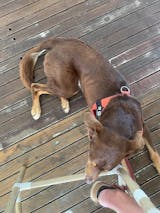
In the diverse world of canine companionship, a distinctive category stands head and shoulders above the rest. Renowned for their strength, intelligence, and unwavering commitment to duty, these exceptional animals are the working dogs.
Beyond just faithful companions, these extraordinary breeds are characterised by their unique capability to perform a variety of specialised tasks, ranging from search and rescue, to herding livestock, guarding property, or even assisting in police or military operations.
Working dogs distinguish themselves through their robust physicality, intense focus, and unparalleled loyalty. More than just pets, these dogs often work side by side with humans, putting their skills and instincts to use in ways that significantly improve the quality of life for many.
They are not simply dogs that work, but rather, they are partners and companions, working in concert with us to accomplish shared goals.
Let's delve deeper into what sets working dogs apart from other breeds, and how to determine if they are the right fit for you.
General Working Dog Characteristics

- Average Height: Generally, working dogs are larger breeds. They can range from medium-sized dogs such as Boxers and Dalmatians (around 55-65cm at the shoulder) to the larger breeds like Saint Bernards and Great Danes that can grow up to 75cm or more at the shoulder.
- Average Weight: Their weight varies widely depending on the breed, ranging from approximately 22kg for breeds like the Siberian Husky, to upwards of 90kg for a full-grown English Mastiff.
- Average Lifespan: Working dogs typically have a lifespan of 10 to 13 years, although this can vary with breed and individual health.
- Typical Temperament: Working dogs are known for their intelligence, courage, and loyalty. They are often very trainable, but can also be independent thinkers.
- Typical Uses: Traditionally used in roles such as guard dogs, police dogs, search and rescue dogs, service dogs, and even sled dogs. The type of work a breed excels at often depends on its specific traits and characteristics.
Determining if a Working Dog is Right for You
Before bringing a working dog into your home, it's essential to evaluate your living conditions, lifestyle, and ability to meet the needs of these highly active and dedicated breeds. Here are some considerations to take into account:

- Lifestyle Compatibility: Working dogs, due to their high energy levels and intelligence, require ample mental and physical stimulation. They thrive in environments where they have jobs to do or tasks to perform. An inactive lifestyle or extended periods of inactivity can lead to behavioural issues due to boredom or frustration.
- Training and Socialisation: Working dogs are highly trainable, but this also means they require consistent, positive reinforcement-based training from a young age. They need to be properly socialised to ensure that they can adapt to various situations and behave appropriately around other animals and people.
- Space Requirements: While not all working breeds need sprawling open spaces, they do generally need more room to move about than smaller, less active breeds. An apartment might not be the best fit for a large working dog, for instance.
- Healthcare and Maintenance: Large working dogs may have specific healthcare needs, and are often prone to certain breed-specific conditions. Regular vet check-ups are a must, as is a diet that supports their size and activity level.
- Time and Commitment: Perhaps most importantly, working dogs require time, attention, and commitment from their owners. This includes not just basic care, but also training, exercise, and mental stimulation.
Need something for your dog? Shop our range below
Unlock the perfect training products tailored to suit your working dog's unique personality. At Pet Control HQ, we have a handpicked selection of training (and grooming) products to enhance your pups training journey!
Breed Examples




Common working dog breeds: Siberian Husky, Alaskan Malamute, Boxer, Rottweiler, Doberman Pinscher, Great Dane, Bernese Mountain Dog, Saint Bernard, Akita, Newfoundland, Bullmastiff, Giant Schnauzer, German Pinscher, Belgian Malinois, Portuguese Water Dog, Great Pyrenees, Leonberger, Tibetan Mastiff, Samoyed, Cane Corso, Anatolian Shepherd Dog, Kuvasz, Black Russian Terrier, Airedale Terrier.
In conclusion
Working dogs offer a unique blend of companionship, loyalty, and utility that is unrivalled in the canine world. However, these remarkable animals are not for everyone - the decision to welcome a working dog into your life should not be taken lightly.
It should be an informed decision, grounded in an understanding of the breed's characteristics, requirements, and the ability to meet those needs effectively and compassionately. In the right home, a working dog is not just a pet, but a valued partner and friend.
If working dogs are not for you then maybe consider a toy breed.
Contact Pet Control HQ
We are a Melbourne based company and our friendly team all have pets too! So, you can relax and feel totally comfortable when seeking our advice and recommendations regarding your animal; our team is exceptionally knowledgeable. We use the products we sell on our own pets too!
Shop with us for anti bark collars, grooming accessories, pet health supplies, electric dog fences and more. If you have any questions, please don’t hesitate to get in touch.













